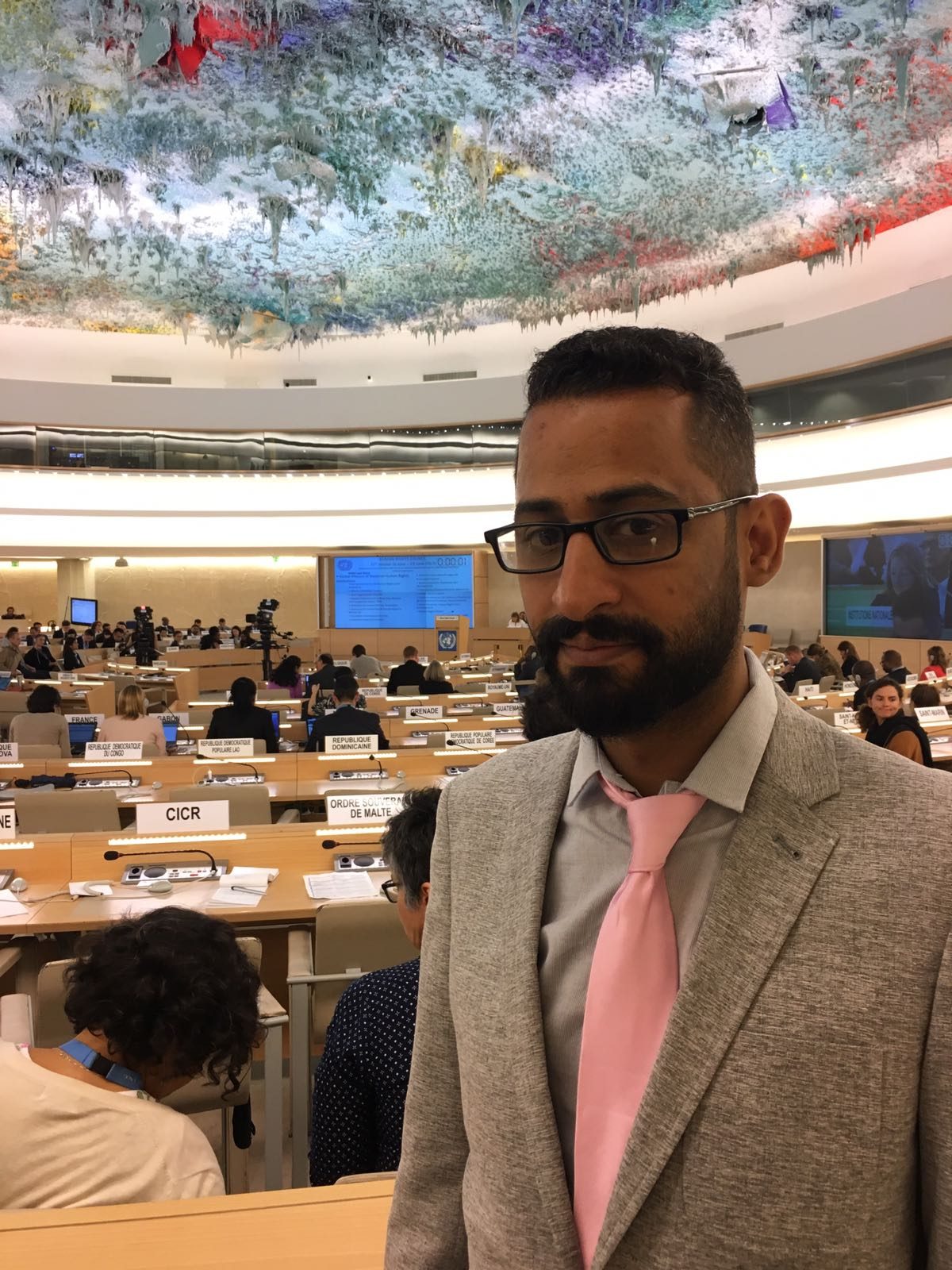On 16 June 2017, Yusuf al-Hoori delivered an oral intervention during the Item 4 debate at the 35th session of the Human Rights Council. In his intervention, al-Hoori raised a number of ongoing human rights violations in the UAE, including issues of free expression and enforced disappearances. Please continue reading for the full text of his remarks, or click here for a PDF of his intervention.
Mr. President,
IDO and ADHRB would like to call the Council’s attention to ongoing human rights violations in the UAE.
The Emirati government has created one of the most restrictive environments for free expression in the world. Extensive anti-terror and cybercrime legislation, together with pervasive surveillance, have enabled the authorities to target and repress nearly all forms of dissent.
Swept up in this dragnet are human rights defenders, academics, political activists, and lawyers.
In 2013, award-winning attorney Mohammed al-Roken was sentenced to 10 years in prison after he defended reform advocates. Security officials reportedly tortured al-Roken throughout his detention and he was convicted in a mass trial rife with due process violations.
In 2015, authorities forcibly disappeared prominent academic Nasser bin Ghaith for eight months and tortured him at a secret detention site. On 29 March 2017, after he reappeared in court, bin Ghaith was sentenced to ten years on charges related to free expression and association.
Most recently, on 19 March 2017, security forces disappeared human rights defender Ahmed Mansoor. The government has previously subjected Mansoor to arbitrary detention, hacking, and other forms of reprisal. Until his disappearance, he was one of the last independent voices documenting abuses in the UAE.
We call on the Council to condemn the UAE’s restrictions on basic human rights as well as its near absolute suppression of critical expression.
Thank you.





